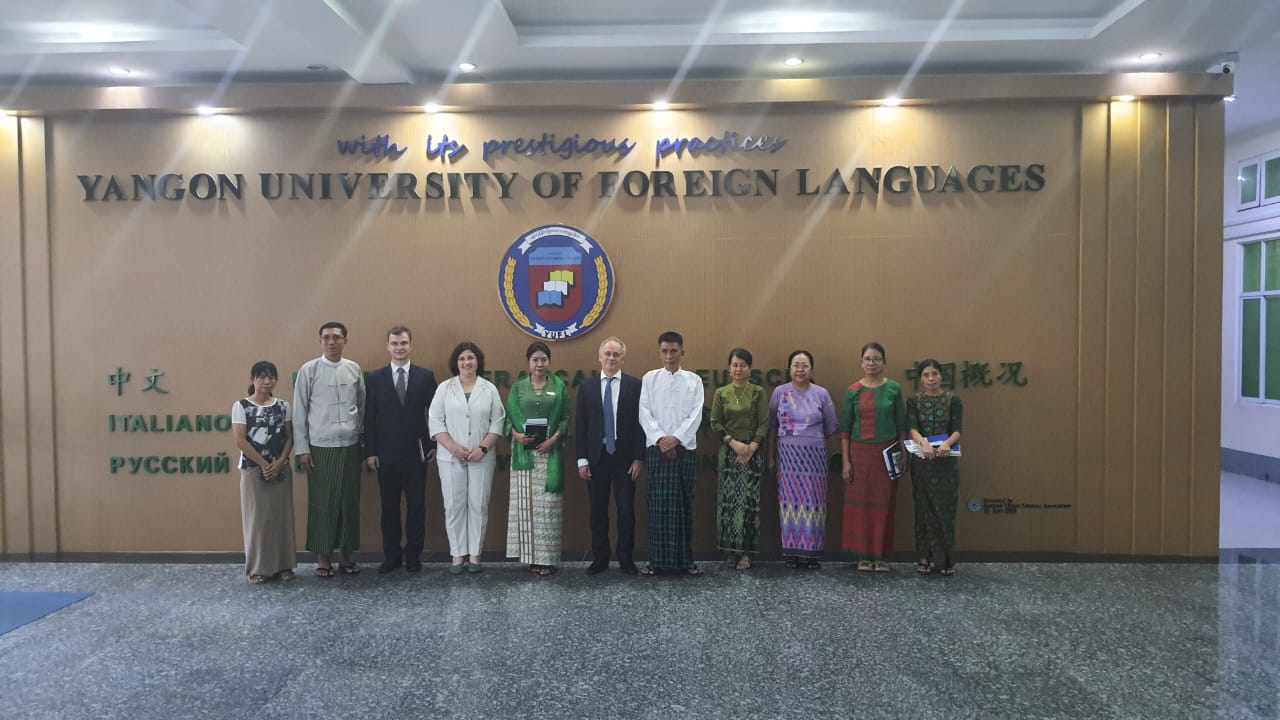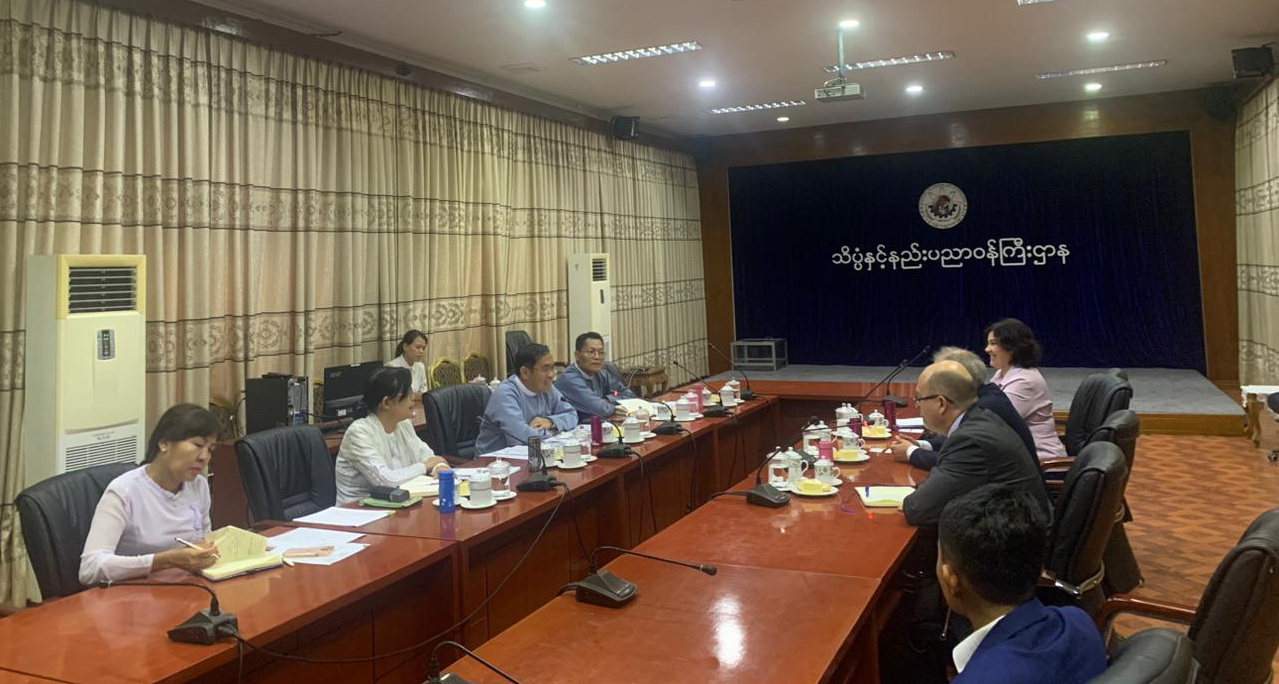A Tomsk State University delegation recently visited Myanmar universities, the Ministry of Defense, Ministry of Science and Technology, Russian embassy in the Republic of Myanmar, and the Young Men's Buddhist Association. The meetings have resulted in willingness to sign a number of agreements. They will solve two important issues: attracting talented students from Myanmar to Russian universities and increasing enrollment quotas for them.
Tomsk State University was represented by Artyom Rykun, TSU Vice-Rector for International Affairs, and Svetlana Rybushkina, head of TSU International Division. They visited the University of Yangon, Yangon Technological University, Yangon University of Foreign Languages, Yangon University of Computer Science, East Yangon University, Myanmar Creative University, and Yangon University of Economics and agreed to collaborate with each these universities.

“At each university we discussed the minimum program for the near future," says Artyom Rykun. “In particular, that the Myanmar Creative University invited us to the graduation ceremony is very indicative in this regard. Judging by those who were awarded diplomas, these 208 students entered the university for a particular reason: They are extremely interested in education. We offered them several of our training areas: software engineering, molecular engineering, or Tomsk International Science Program, as well as areas related to international relations and economics.”
Students of an elite private school that is part of the Mother International School are also interested in entering Russian universities. Taking into account the prospects and national priorities, the school administration emphasizes promoting IT training areas in Myanmar. One of the options for collaboration may be training courses for Myanmar students to enter Russian universities in the IT area.
Historically, the most of the Myanmar students who entered universities in the USSR and the Russian Federation had some kind of army background. They did not necessarily work in the military sphere, but they were from it. Now the two countries face the issue of diversifying areas of collaboration by promoting them in the civilian sector.

The TSU delegation also visited the Russian Embassy and met with Pavel Klabukov, Charge d'Affaires, Andrey Yunak, Embassy Counselor, and Nikolay Perminov, Embassy Attaché. They highly appreciated the efforts of the delegation and expressed their willingness to contribute to solving the important issue of increasing quotas for Myanmar students in Russian universities. The current quota is 40 students, but the parties agreed that it may be increased to 150 students next year. Earlier TSU managed to increase quotas for students from Laos and Pakistan at the federal level.
Along with visits to embassies, ministries, and universities, the TSU delegation visited the Myanmar Young Men's Buddhist Association, an organization that already cooperates with TSU. For example, the largest youth organization of Myanmar and TSU successfully carried out a five-month course in Russian as a foreign language for Myanmar students last year. Seven graduates of this course received certificates during the welcome reception of the TSU delegation.
The first visit of the TSU delegation to Myanmar took place in 2022, and the current forms of cooperation were the result of this visit.